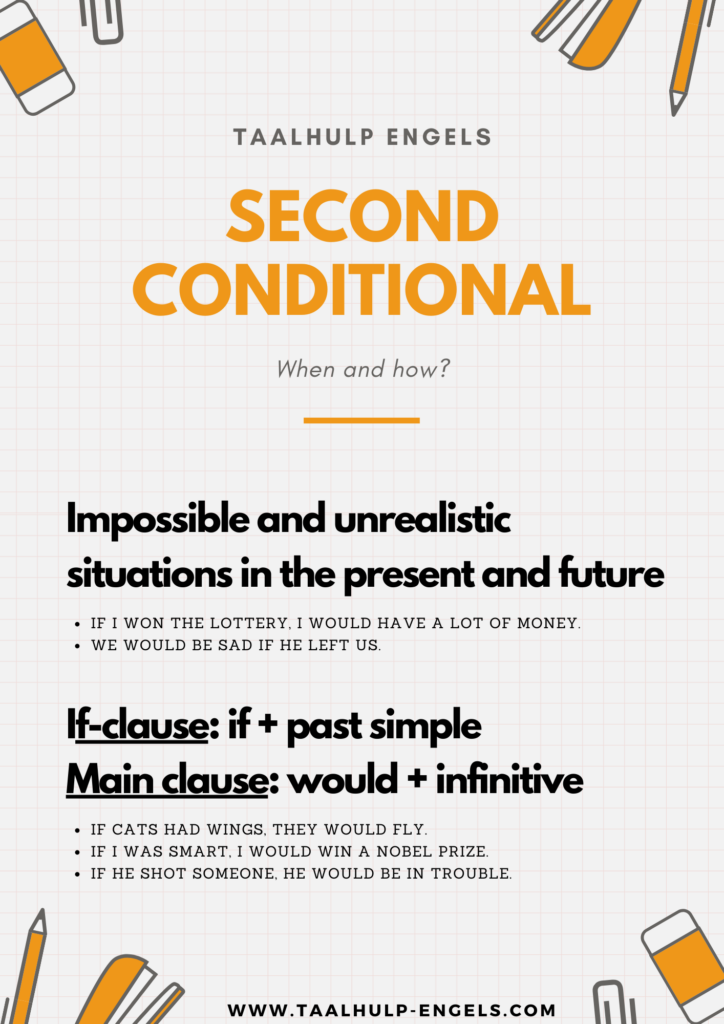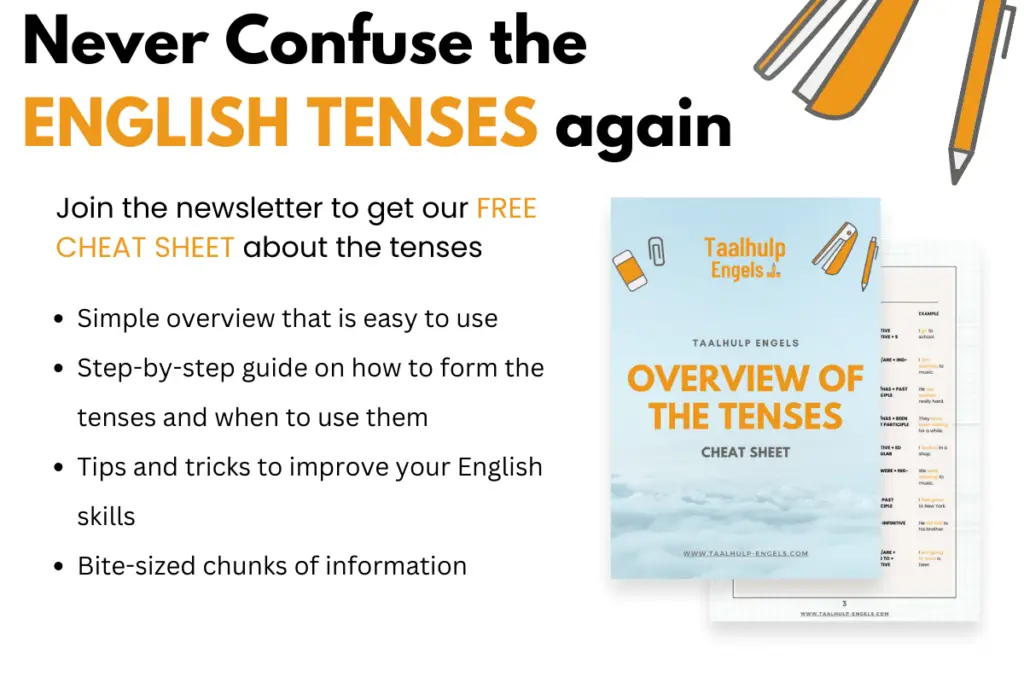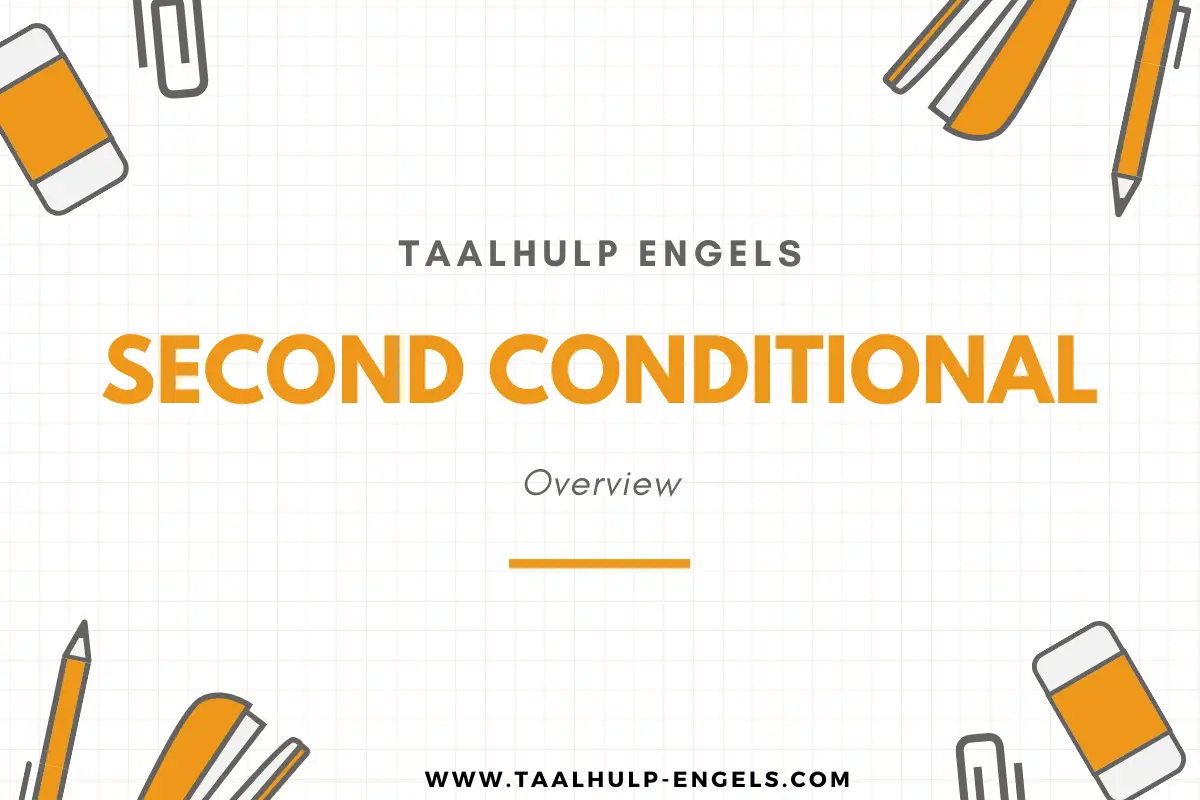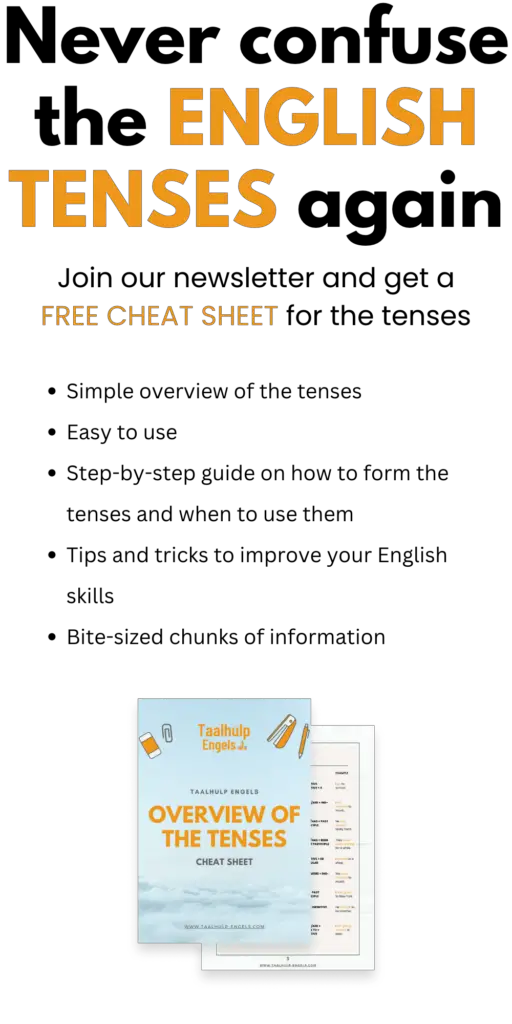The second conditional is another if sentence that is frequently used in English. These sentences have ‘if’ in them so there is a condition and a result of that condition. In this article, you have a complete overview of what the second conditional is, how you form it and there are also several exercises.
Second conditional
The second conditional is used for imaginary and unrealistic situations in the present and future. It can be used to talk about things in your imagination that won’t happen in real life.

Some examples:
- If I won the lottery, I would have a lot of money.
- We would be sad if he left us.
Second conditional form
Before knowing which tense to use, it’s important to know that conditional sentences consist of two parts: the if-clause and the main clause. The if-clause is the clause where you would find ‘if’ and the main clause is the result of the condition (the rest of the sentence). Take a look at the examples below to see the difference:
| If-clause | Main clause |
|---|---|
| If he lost his phone, | he would be unavailable. |
| If I got a gift, | I would be really happy! |

When using the second conditional, you should pay special attention to the tenses of the verbs. The verb in the if-clause needs to be in the past simple. You use would + infinitive for the verb in the main clause. Take a look at the examples:
| If-clause | Main clause |
|---|---|
| If cats had wings, | they would fly. |
| If I was smart, | I would win a Nobel prize. |
| If he shot someone, | he would be in trouble. |
Keep in mind that the order of the clauses can be different. It’s perfectly possible that the main clause comes first:
| Main clause | If-clause |
|---|---|
| Cats would fly | if they had wings. |
| I would win a Nobel prize | if I was smart. |
| He would be in trouble | If he shot someone. |


Exercises
Related articles
- Past Tenses Overview
- The Zero Conditional
- The First Conditional
- The Third Conditional
- Conditionals: Overview


